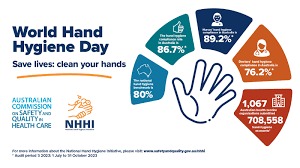Loneliness and Sugar Cravings: The Bittersweet Connection

Loneliness and Sugar Cravings: The Bittersweet Connection
A landmark study published in the JAMA Network Open has revealed that feelings of social isolation can significantly influence our brain’s response to food cues, leading to intensified cravings for sugary foods and a decrease in self-control.
25 April 2024
By Ishika Kumar
In the complex tapestry of human health, the connection between our emotional state and our dietary habits is a topic of growing interest. Among the many facets of this connection, the relationship between loneliness and sugar cravings has recently come under the spotlight. A landmark study published in the JAMA Network Open has revealed that feelings of social isolation can significantly influence our brain’s response to food cues, leading to intensified cravings for sugary foods and a decrease in self-control.
Understanding Sugar Cravings
Sugar, the ever-present ingredient in our daily diet, often lures us into its sweet embrace, making it challenging to resist the temptation to indulge in sweet treats. This phenomenon, known as “sugar craving” or excessive sugar cravings, is influenced by various factors:
Psychological Factors: Stress, anxiety and mood swings can trigger the desire to consume excessive amounts of sugar. Many people turn to sugary foods for comfort during periods of depression or unhappiness.
Hormonal Fluctuations: Hormones such as insulin, ghrelin and leptin play a crucial role in regulating appetite and how the body responds to sugar. Fluctuations in these hormones can heighten the desire for sweet foods.
Nutrient Deficiencies: Deficiencies in essential nutrients such as magnesium, chromium or zinc can disrupt the body’s balance and contribute to excessive sugar cravings.
Impact of Sugar Cravings on Health
Allowing sugar cravings to dictate our dietary choices can have detrimental effects on our health, like:
Obesity: Excessive sugar consumption can lead to weight gain and contribute to the development of obesity.
Risk of Heart Diseases: A diet high in sugar is associated with an increased risk of heart disease and high blood pressure.
Metabolic Disorders: Consuming too much sugar can disrupt the body’s metabolism, leading to insulin resistance and the development of type 2 diabetes.
Mental Health Disorders: Sugar addiction can negatively impact mental health, further causing mood swings and fatigue.
What is the connection between loneliness and sugar cravings?
The recent study on loneliness and sugar cravings, led by senior author Arpana Gupta and her team, provides valuable insights into this complex relationship. The study focused on 93 healthy, premenopausal female participants whose brain chemistry and responses to food cues were observed through MRI scanning. The results turned out to be quite enlightening. Participants experiencing feelings of isolation and loneliness exhibited heightened activity in specific regions of the brain associated with increased sugar cravings and decreased self-control towards them.
Dr Lu Qi, a professor and director of the obesity research centre at Tulane University School of Public Health and Tropical Medicine, emphasises the significance of these findings. He suggests that understanding the connection between mood and food response opens new possibilities for influencing eating behaviours by addressing feelings of isolation and loneliness that one may experience.
Katherine Hanna, a lecturer in nutrition and dietetics at the Queensland University of Technology, underscores the importance of the study in understanding how loneliness affects eating behaviour. She highlights that the research provides valuable insights into the pathway linking loneliness and sugary food consumption, moving beyond mere speculation.
Psychologist Louise Hawkley, a senior fellow at NORC at the University of Chicago, agrees that understanding the connection between loneliness and eating behaviour is crucial for combating chronic diseases and early mortality. However, she stresses the need for a more comprehensive assessment of eating behaviours, beyond self-reported data, to fully understand the issue.
When to see a doctor?
If you find yourself feeling dizzy without sugar or are experiencing regular and inexplicable cravings, it is time to seek some professional help as soon as possible, as it could indicate an underlying problem. Chronic cravings for sweets may be a sign of hypoglycaemia, according to Goodman, a noted expert in the field.
Even if it is a sign of a nutritional deficiency, a professional can help determine what you lack and how much you need, and ensure the lack of the vitamin or nutrient does not lead to further problems. Magnesium deficiency, for example, has been linked to everything from osteoporosis to Type 2 diabetes to heart disease. Plus, getting an appropriate amount might even help with insomnia and anxiety problems. When the body has inadequate magnesium, it struggles to bring energy into the cells; thus, a person feels deprived and craves sugar.
Overcoming Sugar Cravings
While overcoming sugar cravings is no easy feat, there are steps individuals can take to reduce this habit:
Choose Healthier Options: Opt for healthier alternatives to sugary foods, such as fresh fruit or low-sugar snacks.
Prioritise Protein and Fibre: Protein and fibre help stabilise blood sugar levels, reducing the desire for treats with excessive amounts of sugar content.
Establish Regular Eating Habits: Avoid skipping meals to prevent fluctuations in blood sugar levels and reduce cravings.
Manage Stress: Engage in regular physical activity to alleviate stress, as it is a common trigger and frequent cause of sugar cravings.
Monitor Sugar Intake: Pay attention to the nutrition labels on food products to understand and control daily sugar consumption.
Sugar cravings can pose a significant challenge to many individuals, but by understanding the underlying causes and adopting a healthy lifestyle, excessive sugar cravings can be overcome. To improve overall health and well-being, it is essential to focus on maintaining a balanced diet, engaging in regular physical activity and managing stress effectively. Addressing feelings of loneliness and strengthening social connections can also play a vital role in reducing sugar cravings and promoting overall health.








